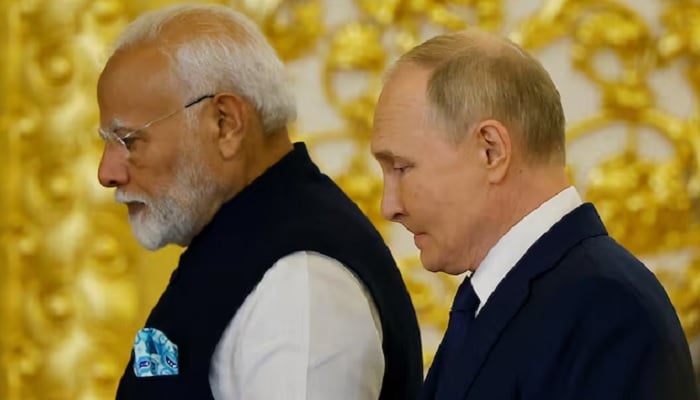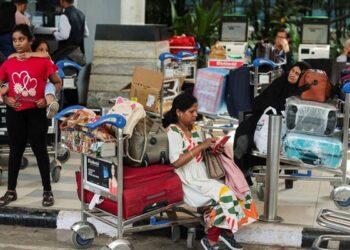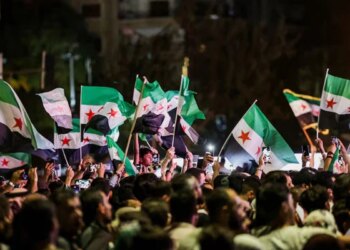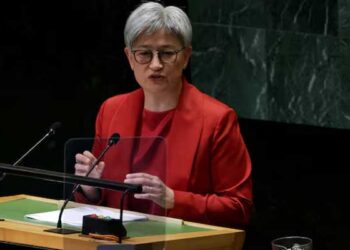Select Language:
India’s Prime Minister Narendra Modi described his recent discussions with Russian President Vladimir Putin as “very positive,” emphasizing their talk on Ukraine and efforts to bolster bilateral relations. The conversation occurred amidst India’s ongoing dilemma regarding its purchase of Russian oil, which provides significant economic advantages but also faces mounting pressure from the United States.
Modi shared on social media that he appreciated Putin’s updates on Ukraine and expressed anticipation for hosting him in India later this year. Buying Russian oil has saved India billions in import costs, helping to keep domestic fuel prices relatively stable; however, these savings are now threatened by U.S. tariffs initiated by President Donald Trump, who has given India three weeks to pivot to alternative suppliers or face increased tariffs, which will rise from 25% to 50%.
The purchase of Russian oil has financed Moscow’s military actions in Ukraine, and Russia remains one of India’s primary arms providers. The close relationship between the two nations extends back to the Soviet era, with Putin’s last official visit to India taking place in December 2021. The Kremlin has criticized efforts to isolate Russia economically and diplomatically, labeling such attempts as “illegitimate,” without directly addressing Trump’s specific policies.
In Moscow, Putin also met with India’s national security adviser Ajit Doval, although details of their discussion have not been disclosed. Since the onset of Russia’s invasion of Ukraine in February 2022, Western nations have aimed to curtail Russia’s revenue streams, but Russia has successfully redirected energy exports to countries like India and China. India has justified its oil imports from Russia as a response to supply diversions caused by the conflict.
A summit between Trump and Putin concerning Ukraine is reportedly planned for the near future, though no precise details have been announced. During their recent call, Modi reiterated India’s consistent stance advocating for a peaceful resolution to the Ukraine crisis. Facing significant political and economic repercussions domestically and internationally, Modi has avoided direct criticism of Trump but emphasized that India will never compromise on its farmers’ interests—an issue central to trade negotiations with the U.S.
India initially sought and believed it might receive preferential tariff treatment from the U.S., especially after Trump expressed a “special bond” with Modi in February. Over time, successive U.S. administrations have regarded India as a vital partner aligned in interests, particularly in countering China’s influence, which has long been a strategic rival competing for dominance in South Asia.







